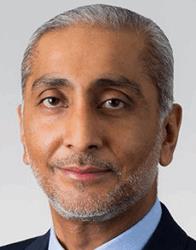Israel's Emergence As A Go-To Market For Conducting Clinical Trials

By Gurinder S. Shinmar, vice president of clinical operations, World Courier, a part of AmerisourceBergen
Driven by the steep costs of hosting clinical trials in the United States and Western Europe, pharmaceutical companies have increasingly turned to global markets to conduct trials over the last decade. During that timeframe, Israel has emerged as an attractive market – bolstered by its high-quality medical infrastructure and well-trained physician workforce, diverse patient population and widespread adherence to Good Clinical Practice (GCP) standards. More than 5,500 studies have been conducted in Israel,1 one of the highest totals among countries outside of the United States and Western Europe. Manufacturers are enticed by the lower costs, familiar regulatory environment, high-quality health care system, including qualified clinical site investigators, and strong patient enrollment rates
Given the country’s ethnic diversity and genetic makeup, Israel – which is home to more than 8.4 million2 people – offers manufacturers access to a broad patient population. The country is particularly an important market for conducting hereditary disease trials, as Israel’s population has a high prevalence of hereditary diseases, such as cystic fibrosis, Gaucher disease and Bloom syndrome. Spurred by the growing demand for clinical trial support in the market, World Courier, a part of AmerisourceBergen, recently added clinical trial product storage and depot-to-site delivery to the existing clinical trial logistics services available in Israel. The added capabilities, which help streamline the clinical trial process, enable manufacturers who don’t have an infrastructural presence or clinical trial experience in the region access to a critical patient pool.
 Despite Israel’s allure, pharmaceutical manufacturers – especially those that are less experienced in conducting clinical trials in global markets – face challenges in that market. The increased globalization of clinical trials and drug manufacturing has led to more operational and strategic obstacles, including escalating regulatory pressures and a greater emphasis on operational efficiency in order to minimize costs, expedite trials and avoid wasting resources. As a result, manufacturers must understand Israel’s legal framework and approval process and be equipped with the resources to comply with the market’s standards. Here are some key considerations that will help pharmaceutical manufacturers navigate potential hurdles and lead successful clinical trials in Israel.
Despite Israel’s allure, pharmaceutical manufacturers – especially those that are less experienced in conducting clinical trials in global markets – face challenges in that market. The increased globalization of clinical trials and drug manufacturing has led to more operational and strategic obstacles, including escalating regulatory pressures and a greater emphasis on operational efficiency in order to minimize costs, expedite trials and avoid wasting resources. As a result, manufacturers must understand Israel’s legal framework and approval process and be equipped with the resources to comply with the market’s standards. Here are some key considerations that will help pharmaceutical manufacturers navigate potential hurdles and lead successful clinical trials in Israel.
Navigating the regulatory environment
With a heightened focus on patient safety and product integrity, agencies worldwide have increased regulation standards relevant to clinical trials in recent years. Both regional and international quality standards have evolved to reflect the heightened demand on end-to-end accountability. For example, a number of international quality standards, such as GCP, exist to establish trial conduct guidelines, as well as manufacturing (GMP), storage (GSP) and distribution principles (GDP). But each country has leeway to interpret standards, so regulations – and the level to which they are enforced – vary by country and are constantly changing.
Designed to fortify the clinical trial process, the wave of regulatory changes can equate to additional layers and nuances within a country. Manufacturers, especially those new to the Israel market, can find it challenging to monitor the evolving regulatory environment for any changes. As a result, it’s critical for manufacturers to work with an experienced logistics partner that is familiar with the region’s regulatory environment and is capable of verifying if a trial is compliant with international practice standards and requirements, such as those set by the U.S. Food and Drug Administration (FDA) and European Medicines Agency (EMA). Both factors will help manufacturers avoid unnecessary delays and, ultimately, prevent them from incurring additional costs.
Facilitating patient engagement
Patient communication is another key component when conducting clinical trials. Before enrolling patients in a clinical trial, physicians must obtain their voluntary informed consent. Regulatory agencies, such as the FDA, emphasize the physician’s need to ensure patients are aware of factors related to their care and participation in a clinical trial, including potential side effects or risks.
Advances in technology coupled with the implementation of more community health awareness programs should help manufacturers navigate any challenges related to patient communication, such as potential language barriers. But it’s also important to work with a partner that offers qualified, multilingual clinical site investigators who can ensure there aren’t any misinterpretations and can simplify consent forms in several languages, including Hebrew and Arabic, two of the most common languages in Israel.
As in all markets, there are challenges for manufacturers to understand and meet regulatory requirements, especially for those that are less experienced in conducting clinical trials in global markets. However, Israel – driven by its medical infrastructure, talented physician workforce and well-educated patient population – has emerged as an attractive destination for manufacturers seeking to expand to global markets to conduct trials. Israel’s resources, coupled with the support of an experienced logistics partner, enable manufacturers to navigate any barriers and successfully conduct a clinical trial.
1 Studies on Map - ClinicalTrials.gov. Clinicaltrialsgov. 2016. Available at: https://clinicaltrials.gov/ct2/search/map?map=ME. Accessed May 19, 2016.
2 Israel's soaring population: Promised Land running out of room?. Reuters. 2016. Available at: http://www.reuters.com/article/us-israel-demographics-idUSKCN0RP0Z820150925. Accessed May 19, 2016.
